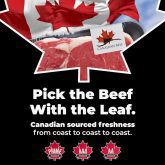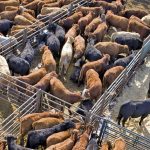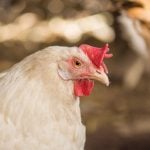As Taiwan tries to ease COVID restrictions, beef imports this year have dropped in volume but increased substantially in value. However, Taiwan’s bid to join the Comprehensive and Progressive Agreement for Trans-Pacific Partnership (CPTPP) could improve Canada’s access to the country’s beef market.
In late September the Taiwanese government applied to join the CPTPP. Taiwan imports nearly 4.1 billion of agri-food products from current CPTPP members, including beef. If accepted, this will improve Canadian beef’s trade conditions and competitive position with other beef supplier competitors in the market.
Beef exports to Taiwan continue to decrease at 5.3 per cent in volume YTD. All major beef suppliers to Taiwan are experiencing volume decreases, but value increases. Canadian beef exports to Taiwan are showing signs of recovery in the frozen segment. Although overall volume is still down compared to last year, 2021 Q2 volumes are 44 per cent higher compared to 2021 Q1 volumes.
Read Also

Pen riders still better than tech at detecting respiratory disease in feedlot cattle, says researcher
Recent research found that pen riders are better than tech at flagging signs of BRD in feedlot cattle
U.S. beef imports decreased 8.43 per cent in volume but were up five per cent in total value. Australian imports decreased 17 per cent in volume and were down 4.4 per cent in value. On a price per kg basis, both countries saw an increase of 15 per cent vs. 2020, for the first nine months of the year. Canada had the highest increase of all three countries on a price per kg. basis at 24 per cent compared to 2020.
The U.S. government announced the re-opening of the new state office (Montana) in Taiwan after nine years of being closed. The reopening of the Montana trade office will focus business trade in fresh foods, including beef, to the Taiwan market.
Retail Sector
Taiwanese retail turnover in August increased 5.3 per cent over July, although year-over-year it has decreased by 4.3 per cent. This is due to much tougher pandemic restrictions in 2021 compared to 2020. Meat prices have been hitting their high point since July. Other food prices are on the rise as well. Taiwan’s local pork prices rose by 10 per cent, which is a high for six years. Other essential foods such as oil and sugar also rose over 30 per cent.
Due to a lack of local production, Taiwan heavily relies on imported beef. Beef prices rose the most of all meats, from 15 to 40 per cent, depending on the cut. Ribeye prices rose about 30 per cent, top blade 40 per cent, while popular shank and rib finger rose at five per cent and 16 per cent respectively compared to May 2021 prices.
Physical activities such as sampling at retail stores are still prohibited by the city government; however, if Taiwan regains control of the pandemic, these restrictions may lift in the last part of 2021.

Food Service Sector
The return of the COVID-19 pandemic in 2021 damaged the foodservice industry more than it did in 2020. As of August 2021, overall foodservice sales reached NT548 billion, a decrease of 25.7 per cent compared to the same period in 2020.
In early October Taiwan’s capital Taipei relaxed restrictions on dine-in food service, which included eliminating limitations on capacity or the use of dividers. Buffet restaurants can return to normal service operations with social distancing at tables. Taiwan’s COVID-19 vaccination coverage has reached 65 per cent which has helped slow the epidemic and gradually return society and businesses to normal.
Before the pandemic, the Taiwanese foodservice industry was booming, with average yearly growth of 4.4 per cent. To help the foodservice industry as well as the overall local tourist industry to recover, the Taiwanese government released the second round of revitalization coupons to encourage consumers to help the economy recover.
During the restriction period, Canada Beef continues to help in-market partners run online promotions to encourage consumers to access take-out and delivery services available at restaurants where Canadian beef is on the menu.

















